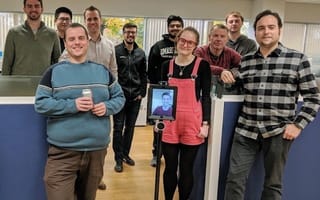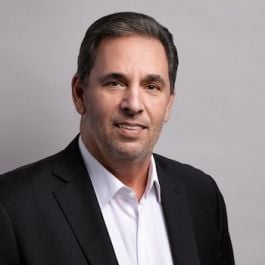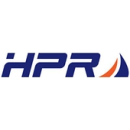
Anthony Amicangioli, founder and CEO of stock market technology provider HPR, thought he had seen it all: 9/11, the Great Recession and the shuttering of his former startup. History taught him to prepare. Then COVID-19 hit.
“We never anticipated a pandemic as a scenario we would need to operate the business through,” Amicangioli said.
Though Amicangioli had weathered a handful of economic storms, a communicable disease was not one his team had anticipated. Still, with future-proofing strategies in place, like stockpiling a year’s worth of cash as an emergency fund, HPR was spared the layoffs and stalling of product development that other tech companies have experienced.
Another Boston tech company that prepared for disaster was Recorded Future, a cybersecurity company that built a remote-friendly infrastructure so that its 500-person globally dispersed team could remain efficient from any location.
Leaders from both companies shared how preparing for the worst paid off, as well as lessons learned moving forward. One of their primary tips? Be humble; the only guarantee in business and in life is change.
How did your team at HPR future-proof the business before COVID-19 struck?
HPR always maintains one year of operational cash on hand to future-proof the business from unanticipated economic and market disruptions. The idea was to ensure the company could withstand market and economic recessions and continue to execute our business plan regardless of any such conditions.
I instituted this due to my experience as a founder. In 2001, I was operating a startup that had raised considerable capital and was focused on a market that turned out to be a viable opportunity. A deep recession that year, along with the events of 9/11, placed us in a bad position. We were unable to raise our next round of financing and were forced out of business. From that point forward, I adopted a conservative approach to maintaining a strong cash base to protect our business from unexpected events.
HPR always maintains one year of operational cash on hand.”
How is that strategy paying off for you now?
We continue to operate without disruption because of this strategy. We can still pursue new product development, maintain current staffing levels without laying off a single person and continue supporting our clients.
We’re also able to divert our reserve funds into programs that will reposition the business for the post-COVID-19 world. Shifting the company to a mostly remote workforce required funding, new resources and the ability to deploy them quickly to respond to rapidly changing conditions.
What’s the most important lesson you’ve learned from this experience?
Be humble in relation to business experience. While it’s true the lessons learned in 2001 served us well, we never anticipated a pandemic as a scenario we would need to operate the business through.
Whenever events of this nature occur, I’m always amazed at the failure to prepare across business and government alike. Before, we thought we could anticipate all possible scenarios, but we did not anticipate a pandemic. We are drawing on this experience and challenging ourselves to brainstorm and anticipate other events that might warrant our attention in advance before the next surprise occurs.
How did your team at Recorded Future future-proof the business before COVID-19 struck?
Many VC-backed companies focus on quick expansion and client acquisition. But Recorded Future has always operated on the premise that we should set a strategy that balanced rapid growth with being fiscally responsible. While we did expand through added platform features and capabilities, we also focused on our necessary expenses and growth management strategy. Across every business area, we strategize a balancing act between the expense line and the ability to acquire new talent and clients.
From an operations perspective, we are a cloud-first company. Our infrastructure was built in the cloud and we rely on SaaS applications for supporting finance, sales, engineering and everything else. We have six offices around the world, but our infrastructure and business operations are geographically dispersed and redundant. For example, there is no reliance on headquarter operations for workflows and client support to continue.
This situation has been an unexpected but real-world stress test.”
How is that strategy paying off for you now?
Financially, the company was optimized to weather a major economic event and we didn’t have unnecessary headcount, unused space or expenses that needed to be adjusted. Operationally, our infrastructure allowed our 500-person team across six offices to be in our physical office one day and completely remote the next. Our business processes and workflows have not materially changed, with the exception of virtual versus in-person meetings.
And with an agile platform in place to respond to real-time threats and events, we provided actionable insights and research to our clients as they dealt with COVID-19-related security threats.
What’s the most important lesson you’ve learned from this experience?
Although we’re still weathering the storm and taking each day in stride, we’ve gathered a few lessons and insights from this experience. This situation has been an unexpected but real-world stress test of business connectivity and productivity over an extended period of time. It helped prove our strategy and planning in the face of economic and societal uncertainties and is something that we could never have tried to emulate otherwise.
Additionally, it has been amazing to see the resiliency and strengthening of our global team. We implemented team-specific stand-ups and weekly all-hands company meetings. Our teams have rallied together through the increased interactions and support. While our end goal is to return to our physical offices, we know that our team can be successful in both the digital and physical world.









